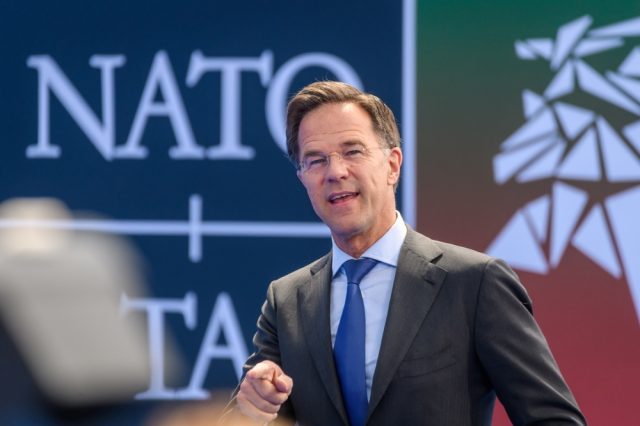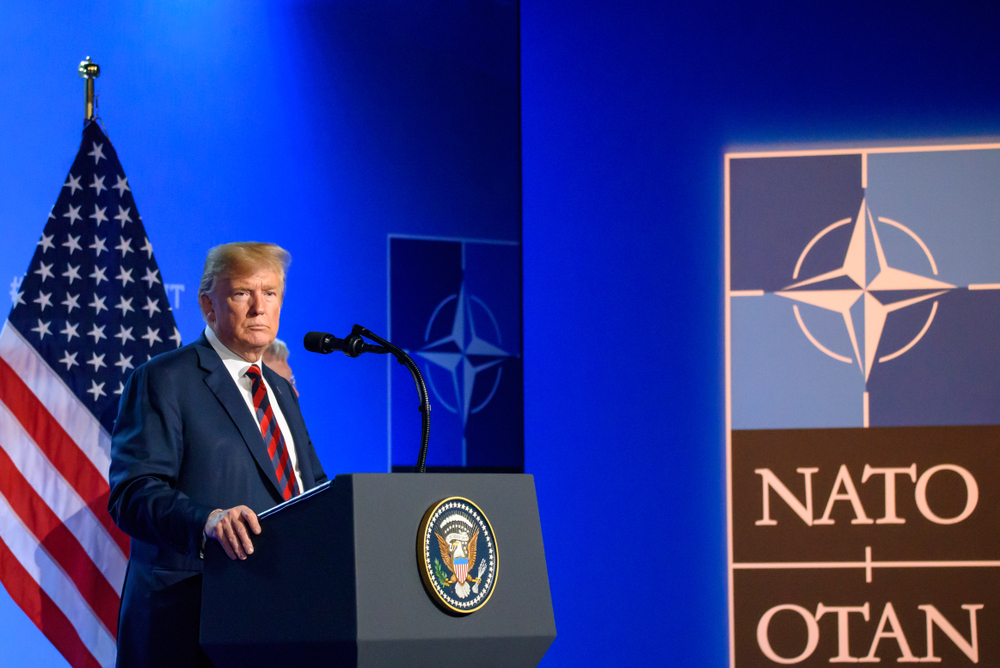
What can change with the ex-Dutch Prime Minister at the helm?
Jens Stoltenberg’s (Norwegian Labor, AP – S&D) tenure as NATO Secretary General is coming to an end. Stoltenberg, who has in effect been carrying out the role for more than two terms, having been officially appointed on 1 October 2014, could soon be replaced given the agreement of several countries on a name.
According to what has been reported by multiple sources, there is an agreement between the United States, United Kingdom, France, and Germany on the outgoing Dutch Prime Minister Mark Rutte (VVD – RE) and some small signs in this regard could already be noticed by the European mission in Tunisia, where Ursula von der Leyen (CDU – PPE), Giorgia Meloni (FdI – ECR) and Rutte went.
The position should be taken in October, at the exact end of the tenth year of Stoltenberg’s secretariat. How many and what are the important aspects of this candidacy? Quickly said, the first major aspect is how the Russian and also the Israeli front will continue.
The Rutte governments have often been judged as supporters of fiscal austerity policies and one of the sectors affected was specifically the defense. It might lead us to think of a secretariat more inclined towards diplomacy rather than the deployment of resources. However, with Russia’s invasion of Ukraine, the Netherlands increased public spending on defense, reaching 2% of Dutch GDP. It goes without saying that Rutte will continue a tough policy against Vladimir Putin.
Another element is the relationship between the various NATO partners: if certainly the United States, United Kingdom, France, and Germany are excellent sponsors for Rutte, it is equally true that it will be difficult to keep the Eastern European countries away from the games. Suffice it to say that Poland, especially now that Tusk is Prime Minister again, does not have a position on Rutte, which almost seems like a request for guarantees. Turkey would not see his candidacy very well due to past (but perhaps also future) understandings with Geert Wilders (PVV – ID) on anti-Islamist and anti-immigration policies, as well as Rutte’s aversion to Orban’s policies (Fidesz – NI) on LGBT rights could lead to a split within NATO. Three other names are candidates – or have been candidates: the President of Romania Klaus Iohannis (PNL – PPE), the Estonian President Kaja Kallas (ER – RE), and the Latvian Foreign Minister Krisjanis Karins (JV – PPE), names that may be appreciated both by the Visegrad Bloc and by the Scandinavian countries, so Rutte will first have to convince any internal resistance.
The internal front is also very important: Mark Rutte resigned as Dutch Prime Minister on 10 July 2023 and is still Premier since the negotiations for the establishment of a new government have not been completed since the end of November. It seems quite clear that the nomination of such a strong name from the Dutch Liberals would open up important opportunities for reaching a political majority that does not see the VVD as a party capable of expressing the Premier. Whether it will be in support of a name from the VVD or the socialists of the PvdA (S&D) is not yet known.
 The most important element, however, is the relationship with American politics: it seems in fact that Mark Rutte is quite close to Donald Trump and is one of the few capable of directing the Tycoon in foreign policy. More details make this clear: first, a few days ago Mark Rutte, in an interview, urged European leaders to stop complaining about Trump and instead focus on what to do with Ukraine; in an interview with Bloomberg Mark Rutte also commented positively on Trump’s statements on the “weakness” of NATO, stating that “Donald Trump said we weren’t spending enough and he was right! America represents 50% of the NATO economy and when he was President they had reached 70-75% of the general expenditure, so he was totally right”; furthermore, Politico magazine reports how on several occasions Rutte managed to change Trump’s mind without colliding but rather finding the diplomatic way between the idea of the American President and the resistance of the allies, in such a friendly way that Trump himself he called him his “friend”.
The most important element, however, is the relationship with American politics: it seems in fact that Mark Rutte is quite close to Donald Trump and is one of the few capable of directing the Tycoon in foreign policy. More details make this clear: first, a few days ago Mark Rutte, in an interview, urged European leaders to stop complaining about Trump and instead focus on what to do with Ukraine; in an interview with Bloomberg Mark Rutte also commented positively on Trump’s statements on the “weakness” of NATO, stating that “Donald Trump said we weren’t spending enough and he was right! America represents 50% of the NATO economy and when he was President they had reached 70-75% of the general expenditure, so he was totally right”; furthermore, Politico magazine reports how on several occasions Rutte managed to change Trump’s mind without colliding but rather finding the diplomatic way between the idea of the American President and the resistance of the allies, in such a friendly way that Trump himself he called him his “friend”.
The uncertainty over the outcome of the presidential elections which will presumably involve Joe Biden and Donald Trump in November probably weighs heavily on this decision: having a NATO Secretary General capable of speaking with both potential Presidents is the greatest life insurance for the Atlantic alliance itself.



 Subscribe
Subscribe